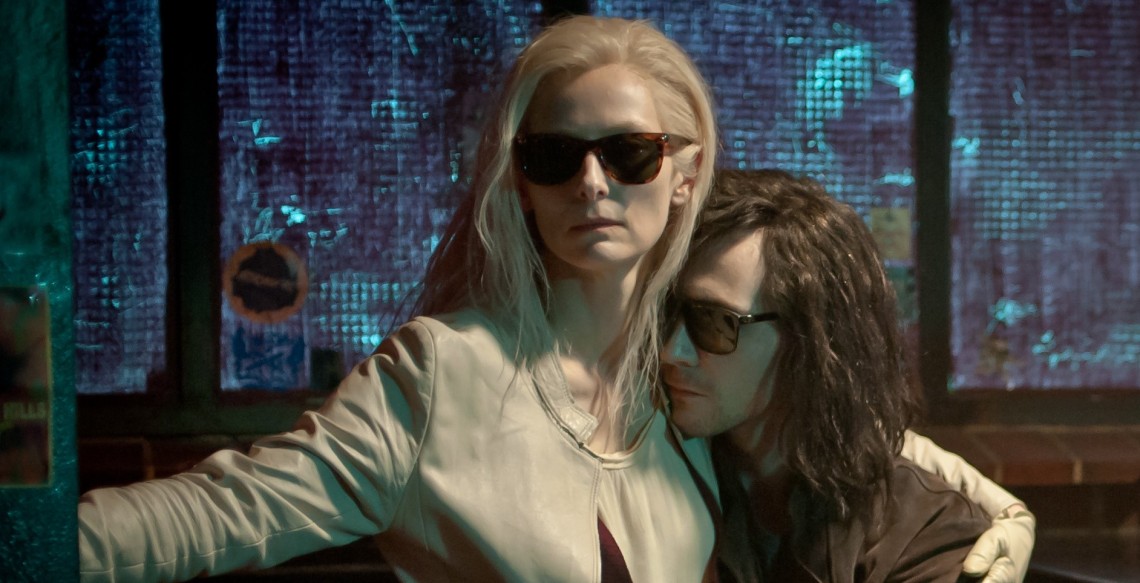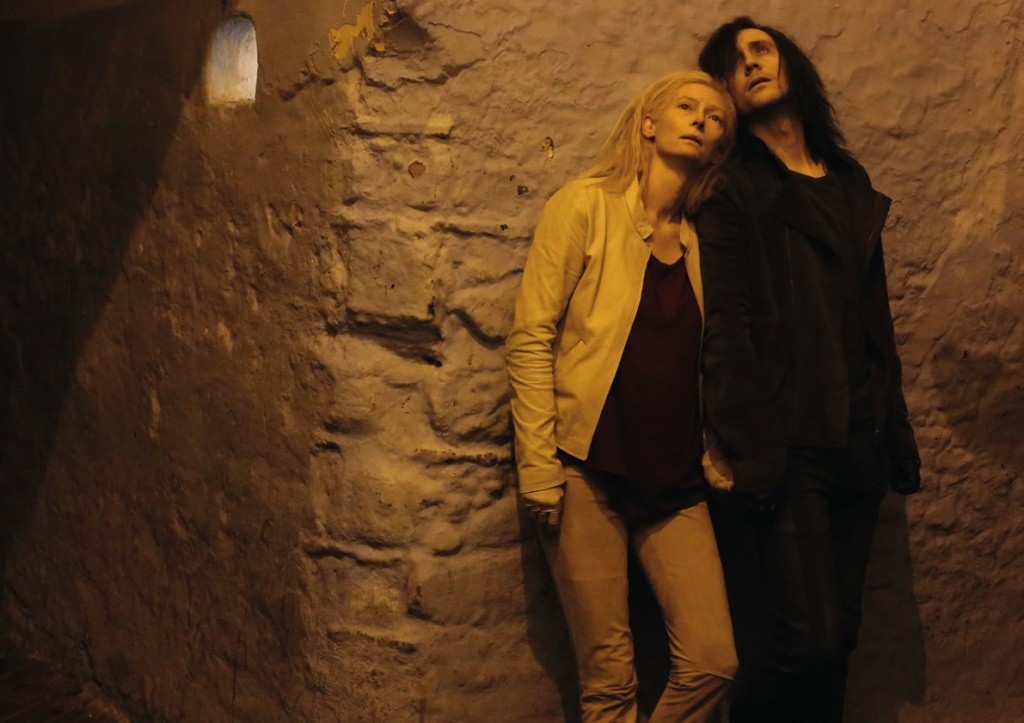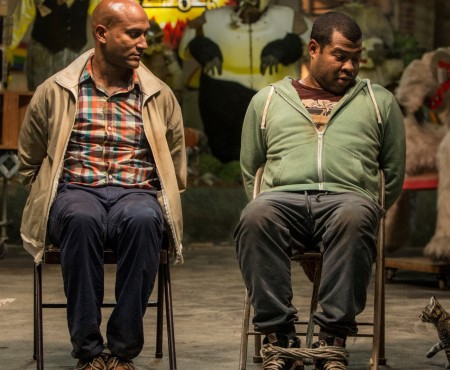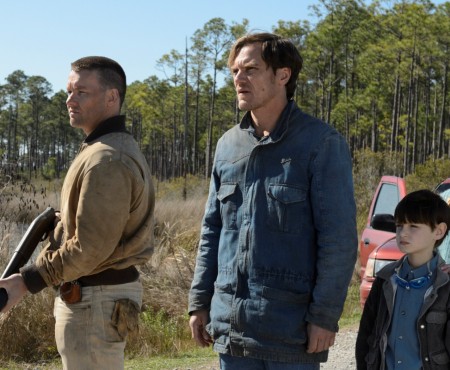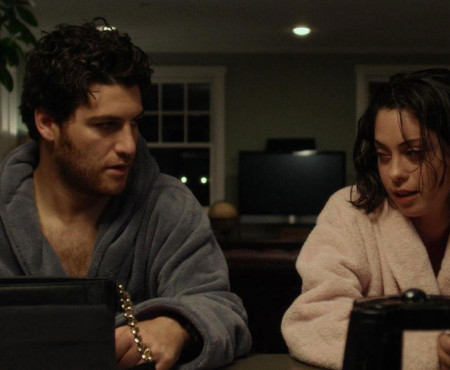Jim Jarmusch is a filmmaker who has long been concerned with human behavior, forgoing traditional narratives in favor of observing people interacting with one another, without anything ever really “happening”. When things do happen, it is without much fanfare, and usually as low-key as the events that come before. Such is the case with his latest film, Only Lovers Left Alive, a tale of two vampires living in present day Detroit, who spend their nights driving around and sharing their nostalgia about the decay of human society.
Choosing Detroit as the backdrop for a tale of addiction, melancholy, and the decline of American greatness makes for an inspired and obvious choice, with the city often breathing so much life into the film that it becomes its own character. Filled with decaying houses, factories, and bars, becoming this almost hulking organism of its own, Detroit feels like it’s decaying and barely breathing. In a film concerned with the need to go on and live, it’s a striking contrast to see vampires having more life in them than a city of people who aren’t undead bloodsuckers.
Tom Hiddleston and Tilda Swinton play Adam and Eve, a married pair of centuries-old vampires who, after reuniting from a separation, spend a great deal of time enjoying catching up, only to find their lives derailed by the arrival of Eve’s loose-cannon sister, Ava (Mia Wasikowska). To say much more would ruin what little plot there is in the film, but it’s obvious that things don’t end up going well. More importantly is how Jarmusch is able to infuse even the slowest and quietest of scenes with a real sense of purpose, each long walk, drive, or dance a meditative look into the minds of our leads.
Adam, a musician, is brought a set of guitars by his human friend, a scene visually reminiscent of Travis Bickle buying the guns from the black market salesman in Taxi Driver. Ian (Anton Yelchin) unpacks and explains each achingly beautiful instrument, while Adam stares down the neck of each, like a gunman examining the sights down the barrel of a rifle. Later on, the two lovers trade stories of their favorite writers, down to Mary Wollenstonecraft. These moments of simple pleasures are interwoven between ones of melancholy and nostalgia, with Adam contemplating suicide because he can’t stand to be around humans anymore, who have lost all ambition for greatness and are “afraid of their own fucking imaginations”. In a film that relishes the weird, droll humor, there’s a pervading sense of longing for a different time, mirroring the decline of one of the old great cities of America.
Hiddleston is in fine form here, as is Mia Wasikowska, but Tilda Swinton emerges as the true star of the film. Her inherent sweentness and love for life contrast organically with Adam’s depression and cynicism, ultimately winning him over from the notion of ending his life, a free spirit breathing some much needed joy back into his controlled existence. Somewhat hilariously, she takes full control of the situation when things go south, becoming the voice of rationality and level-headed reason. Swinton has long been known for her sheer versatility, but here she’s at her peak, offering up a complex and nuanced portrayal that is often so effortless that it’s easy to take her for granted.
Jim Jarmusch plays by his own rules, making films that only he could make, and Only Lovers Left Alive is no different. Revealing layer after layer of dense thematic undertones, it’s a film that I’ll be revisiting many times over the years, if only to deepen my understanding of Jarmusch’s characters and world. After all, they’ve got time.

















